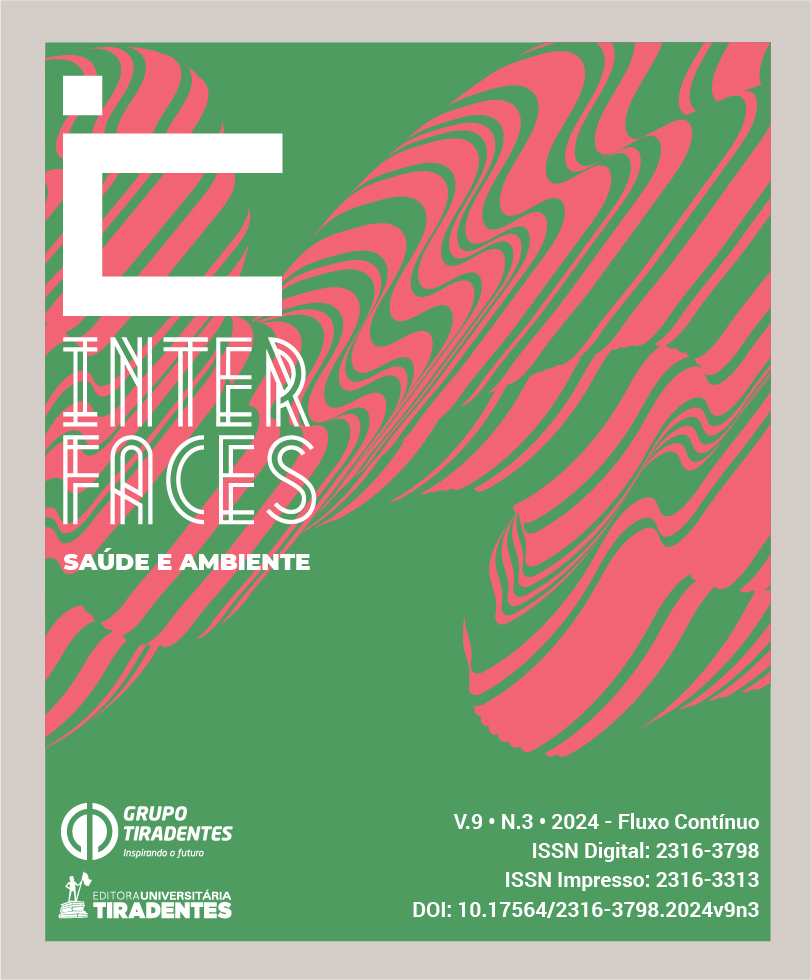Trend of congenital syphilis in Alagoas, Sergipe and Bahia under the conjuncture of COVID-19
DOI:
https://doi.org/10.17564/2316-3798.2024v9n3p342-357Published
Downloads
Downloads
Issue
Section
License
Copyright (c) 2024 Interfaces Científicas - Saúde e Ambiente

This work is licensed under a Creative Commons Attribution-NonCommercial 4.0 International License.
Autores que publicam nesta revista concordam com os seguintes termos:
a. Autores mantêm os direitos autorais e concedem à revista o direito de primeira publicação, com o trabalho simultaneamente licenciado sob a Licença Creative Commons Attribution que permite o compartilhamento do trabalho com reconhecimento da autoria e publicação inicial nesta revista.
b. Autores têm permissão e são estimulados a distribuir seu trabalho on-line (ex.: em repositórios institucionais ou na sua página pessoal), já que isso pode gerar aumento o impacto e a citação do trabalho publicado (Veja O Efeito do Acesso Livre).
Abstract
The study objective was to analyze the trend of congenital syphilis in the states of Alagoas, Bahia and Sergipe, according to final diagnosis, child's age and prenatal care, in the period from 2018 to 2022. The retrospective descriptive observational study with a quantitative and qualitative approach collected information available in the Notifiable Diseases Information System (SINAN) to evaluate the temporal trend, through the Jointpoint Regression Program. The trend of congenital syphilis shows the non-performing of prenatal care was increasing in Alagoas while the performance was decreasing in Bahia, in Sergipe, the final diagnosis for abortions and stillbirths is increasing and regarding the age of the child, there is an increase of 7 to 27 days in Alagoas and less than 7 days in Bahia. Congenital syphilis, an indicator of prenatal care quality, is a serious public health problem and the COVID-19 pandemic has affected prenatal care access and its quality.




















